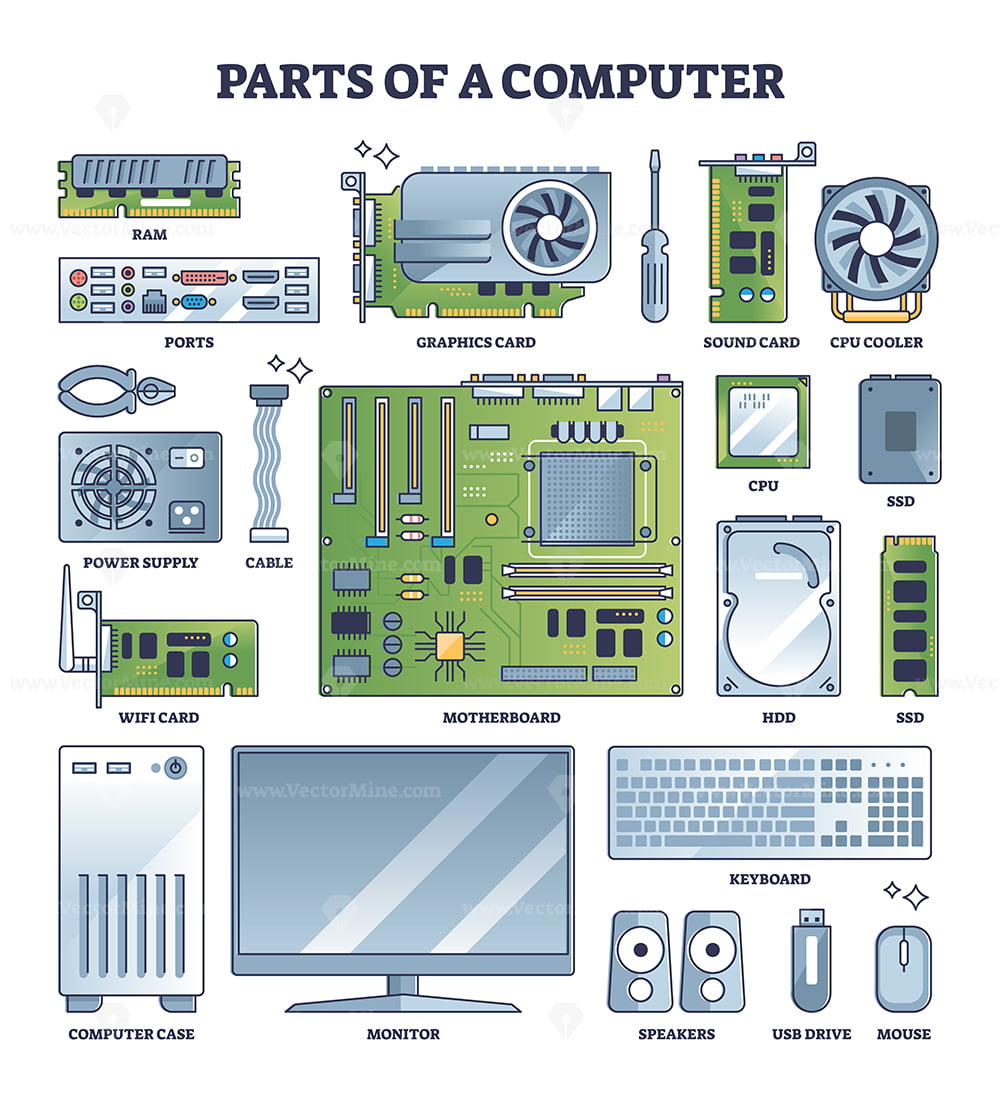The Economical Study of Unused Computer Parts

In today's technology-driven world, the need for computer components continues to increase, resulting in an ever-increasing market for surplus computer parts. Due to accelerated advancements in technology, many people and businesses find themselves needing to upgrade their systems frequently. This creates an opening for savvy shoppers to take benefit from surplus parts, which can often provide high-quality options at considerably lower prices. Whether you are a budget-conscious gamer, a DIY enthusiast, or someone looking to refurbish older systems, knowing how to maneuver through the surplus computer parts market can make all the difference.
Nonetheless, shopping for surplus components can be overwhelming without a clear understanding of what to seek out. This article acts as your definitive guide, outlining key tips and advice to help you with confidence make informed decisions. We will explore the characteristics of high-quality surplus parts, how to assess their condition, and important considerations when buying different components, from graphics cards and motherboards to power supplies and cooling systems. By equipping yourself with the right knowledge, you can uncover great deals and build dependable systems while steering clear of common pitfalls in the surplus market.
Essential Tips for Purchasing Surplus Computer Parts
When evaluating the purchase of surplus computer parts, it is vital to conduct thorough research before making any choices. Gather information about the exact components you need, their market prices, and reliable brands. This knowledge will help you evaluate whether you are receiving a reasonable deal when examining surplus options. Acquaint yourself with the specifications of the required parts to ensure compatibility with your current system.
Examining the condition of surplus parts is critical for ensuring you invest in reliable components. Look for signs of damage, and inquire about the background of the product, such as previous utilization and warranty status. When it comes to important components like mother boards and graphics cards, verify whether they have been tested or refurbished. Trustworthy sellers will often provide warranties, allowing you to feel more secure in your buying decision.
Finally, choose trustworthy sources for purchasing surplus computer parts. Web-based marketplaces, surplus electronic shops, and local PC stores that specialize in used components can be great options. Be careful of deals that seem too good to be true, as they may indicate counterfeit products or components with unknown defects. Reputable sellers often have refund policies, which provide an additional layer of protection in the buying process.
Assessing Standards and Condition of Components
When shopping for used hardware, the quality and integrity of the components are crucial to confirm that they will perform properly in your system. Start by physically examining https://www.fcsurplus.ca/shopping/products/c376-computer-equipment/ for any signs of defects such as cracks, burns, or degradation. These imperfections can suggest that a part has been abused or affected by negative circumstances. A careful inspection will also help you recognize whether the component has been refurbished or tampered with in any way, which could affect its dependability and efficacy.
A further essential point to think about is evaluating the parts if feasible. For components like storage drives, video cards, and random access memory, using analysis software can disclose their working condition and help you gauge their capabilities. Some retailers provide assurances or guarantees, so consider these possibilities to enhance your confidence in the buying decision. Additionally, it’s wise to check for compatibility with your current system, as a part that is incompatible can lead to lost effort and effort.

In conclusion, pay care to the brand and version of the parts you are considering. Renowned manufacturers often have a track record for quality and trustworthiness, which can offer comfort when purchasing used items. Investigating the specifications and reviews of the items can also provide insight into their durability and efficacy. By using these assessment methods, you can make wise selections that contribute to a effective upgrade or upgrade.
Navigating Offers plus Protection Factors
As you shop for surplus computer parts, finding the best deals typically requires effort along with research. Numerous online marketplaces, discussion boards, plus local electronics stores offer surplus components at reasonable prices. Look out for discounts plus volume purchase savings that sellers might offer. In addition, consider comparing prices on platforms to make sure you are getting the highest bang for your buck for your money. Sites that specialize in surplus electronics might likewise have feedback plus recommendations that can inform your purchase decisions.
However, alongside looking for the optimal bargains, it is essential to focus on security plus quality. Always check the seller's standing before making a purchase. Check for ratings, testimonials, and return policies that safeguard you in case the product does not meet your expectations upon receipt. Confirming warranty options can also provide a degree of protection, as it shows the seller's assurance in the standard of the surplus parts being sold.
In conclusion, examining the condition of the parts before buying is essential. For case in point, ensure that there are no apparent defects, such as oxidation or visible damage for items like motherboards or GPUs. Checking components when possible, such as RAM, hard drives, and power supply units, can assist validate their operational status. By focusing on both deals and diligence, you can assuredly navigate the surplus market while ensuring that the components you acquire are reliable, trustworthy, and in satisfactory condition.
